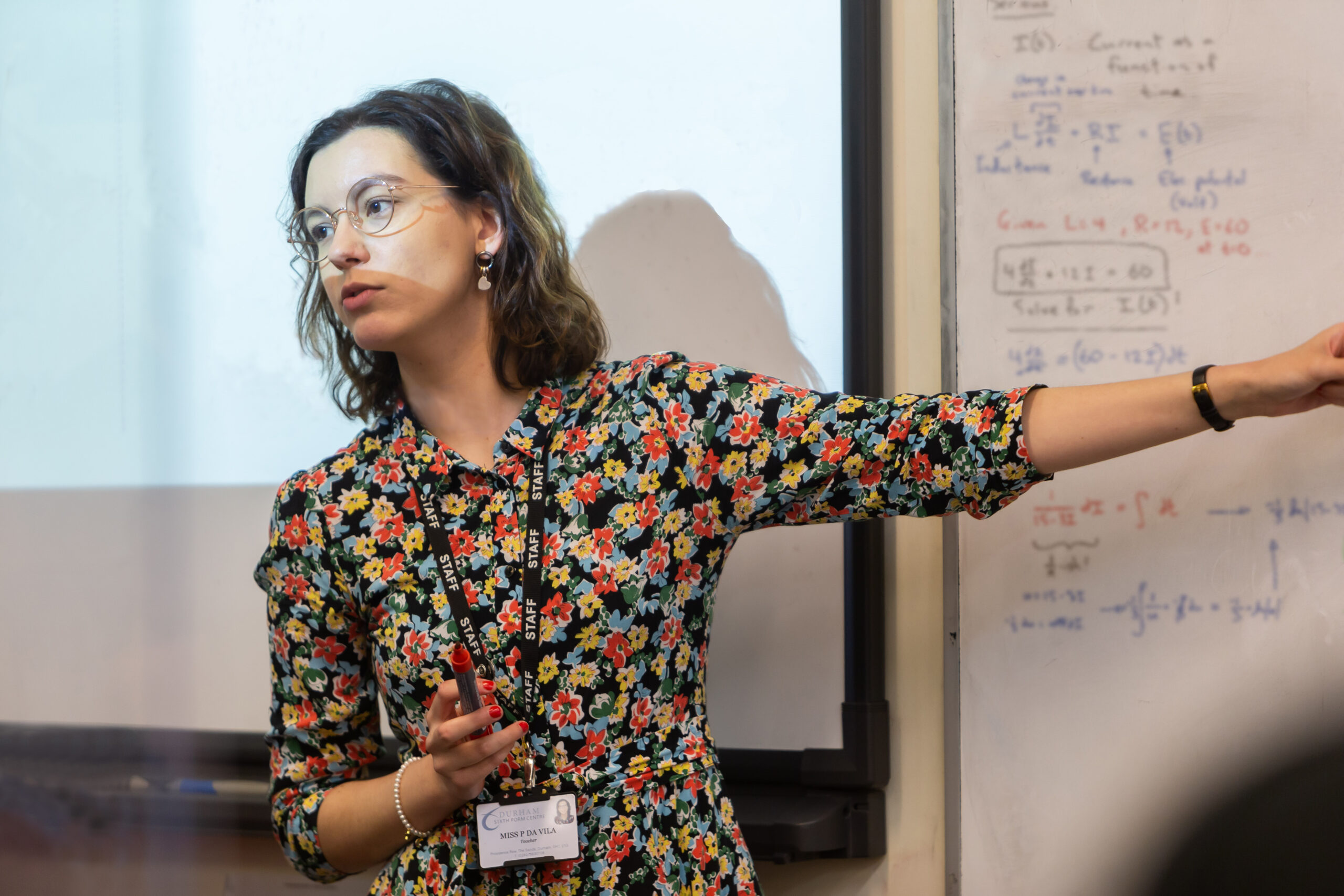The Biology and Applied Science departments have fostered relationships with several Russell Group Universities and, as a result, were able to welcome Dr Jose Guillermo Puello from the University of Manchester. He has previously delivered workshops and progression talks for the department, which have been very well received. Students from a range of STEM backgrounds were able to come and find out more about degrees in biosciences, nursing, ophthalmology and pharmacy from one of the country’s leading universities.
Due to the applied nature of degrees in allied health professions, Dr Guillermo chose to deliver the session as a case study workshop. Students followed Mr Filipek, a fictional patient with concerns about his eyesight, through his journey in the NHS. We started with a discussion of what students already know about various jobs in the NHS, in which students went beyond a basic understanding of roles to find out the unique and varied opportunities available in each profession.
Following Mr Filipek to the opticians, students applied their existing scientific knowledge to a discussion on glaucoma through an activity allowing them to choose from a list of possible symptoms as a team.
They could then make additions and subtractions to the list as individuals. Mimicking the complimentary skills of collaboration and independent thought, this exercise gave students a taste of university style, problem-based learning and the skills they might use when working in the NHS.
Ultimately, in their role as ophthalmologists, our students found that Mr Filipek did not have glaucoma as he originally thought, but was showing symptoms of high blood pressure. They therefore followed him to the pharmacy and analysed the prescription given to him by the GP. This allowed them to put themselves in the role of a pharmacist, learning that the role includes a lot more than handing out prescriptions! Unfortunately, our imaginary patient did not follow the advice that we gave to him and suffered from a stroke, finding himself under the care of a nursing team. As Dr Guillermo pointed out, nursing is perhaps one of the most diverse roles in the NHS and our discussion showed that some of the group were not previously aware of the wide range of responsibilities and specialisms held by nurses.
Dr Guillermo also delivered a separate talk on the range of Bioscience degrees offered at the University of Manchester, giving a fascinating insight into how students can combine their scientific interests in new ways through interdisciplinary science courses. This opportunity has broadened our students’ understanding of the exciting academic and career opportunities available to them in STEM and we look forward to continuing to raise the profile of aspirational universities.







